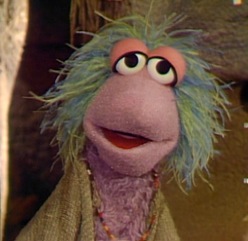Community
November 12, 2014
Get Moving!: The Avant Canada Conference
by Kailin Wright
The Avant Canada conference (organized by Gregory Betts) fueled discussion and debates over the future—the future of Canadian art, scholarship, politics, and the academy. It was a conference that brought together scholars and artists; a conference that examined the avant garde of the pasts and futures; a conference that took me from panels on political futurity in Canadian literature, to video games, to representations of Aboriginal culture in the digital humanities, to small presses with Stan Bevington, to bp Nichol and Fraggle Rock. Personal touches like a boxed edition of Avant Canada: more useful knowledge (edited by Derek Beaulieu and Gregory Betts) and an encouraging email from Gregory Betts to the first panelists on Wednesday morning stood out, especially considering the sheer number of attendees and the scope of the conference.
I delivered a paper on failed pregnancy as a symbol of a failed national future in Canadian drama and participated in a roundtable discussion on EMiC emerging scholars. On Wednesday, I was fortunate to be a part of the “Future of Work” panel that included EMiC graduate fellow Julia Polyk-O’Neill, Robert David Stacey (Ottawa), and Carmen Derkson (Calgary); we received provocative questions on the performance of female howls as an embodied language in its own right and continued our discussion of the distinctions of gendered labor versus work late into the night
.
On Thursday, the EMiC Emerging Scholars Roundtable offered a look back at the past 7 years of the project—with all of its publications, mentorships, and training opportunities—as well as a look forward with the uncertainty of the market. Chaired by the EMiC Director Dean Irvine, my fellow roundtable discussants included Karis Shearer (UBC Okanagan), Bart Vautour (Dalhousie), and Marc André Fortin (Sherbrooke). In short, a group of scholars who I continue to learn from as they discussed Canadian poetry recordings (Karis), the Spanish Civil War project (Bart), and a daring blank edition of Barbieau’s The Downfall of Temlaham (Fortin) that performs issues of appropriation.
The conference culminated late Thursday afternoon in the spontaneous coming together of two distinct panels: one made up scholars discussing Digital First Nations and one with artists of the Dub poetry revolution. Jason Edward Lewis (Concordia), Michael Nardone (Concordia), and Stephen Foster (UBC-Okanagan) delivered work on Aboriginal territories in cyberspace, the phonopoetics of the Idle No More Round Dance Interventions, and contemporary representations of Indigenous peoples in popular culture, respectively. These papers were interlaced with performances and talks by Lillian Allen (OCAD), Chet Singh (Centennial), and D’bi Young (Independent Poet) on the political and personal in poetry. The last performer-speaker was D’bi.Young who ended the panel by performing a piece about the political shaming of female blood—a performance that took her into the audience because of, as she later explained over dinner, the sheer energy of the viewers.
This was a conference that brought you out of your seat and onto your active, political feet as you danced with artists, thinkers, readers, and activists to the sounds of Fraggle Rock.

